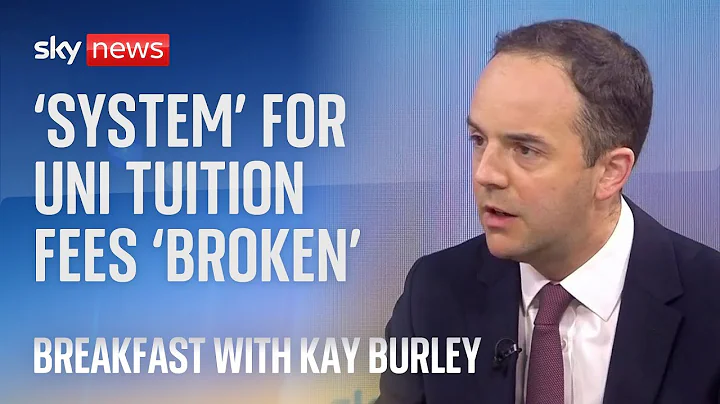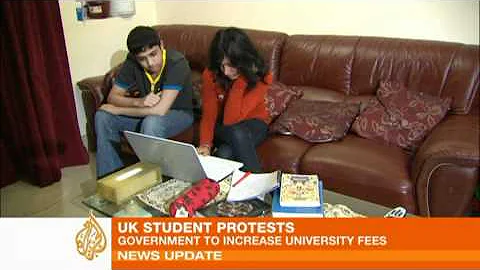
It is reported that Bavaria will follow the footsteps of Baden-Württemberg and Saxony in charging tuition fees for non-EU students. At present, this decision has been opposed by students.
CSU submits bill for charging tuition fees for the second time

In order to allow universities to "generate revenue" and reduce the financial burden on the state, Bavaria plans to pass a so-called "comprehensive fee scheme" that charges tuition fees for non-EU students in the state.
Bavaria’s ruling party, the Christian Social Union (CSU), drafted the Higher Education Innovation Act (Hochschulinnovationsgesetz) in mid-2021, which gave universities the right to decide whether to charge tuition fees and the amount.
However, due to various reasons (mainly due to too much opposition), the plan was shelved.
However, almost a year later, in June of this year, the party once again improved and submitted a revised draft. Currently, the state parliament has completed the first reading and is expected to proceed to the second/third reading soon and finally finalize it before the start of the summer recess in August.
If the bill is passed, based on Baden-Wuerttemberg's previous experience, those who enroll this winter will need to pay a tuition fee of 1,500 euros.
Currently, all public colleges and universities (universities or higher education colleges) in Bavaria offer free tuition. However, students who choose to study part-time, that is, in the "Berufsbegleitedenes Studium (part-time study)" need to pay a tuition fee of 2,000 euros per semester.
※ Baden-Württemberg introduced a similar policy on May 3, 2017, charging tuition fees for foreign students. Starting from the winter semester of 2017, foreign students are required to pay tuition fees of 1,500 euros per semester, which is equivalent to 3,000 euros per year.
How do universities in various states in Germany charge tuition fees?

In Germany, each federal state can decide on its own whether universities in its state charge tuition fees, but the state government cannot set tuition fees so high that people cannot afford it.
Currently, with the exception of Baden-Württemberg, other states in Germany provide free or low-tuition higher education to all students.
Only a handful of states choose to charge students for extra-long semesters, or for students pursuing a second degree or working-study. The chart above shows the various types of tuition fees charged by each state.
The tuition fee system has caused the reduction of international talents in Baden-Wuerttemberg
Baden-Wuerttemberg is the first federal state to charge tuition fees for foreign students. The number of non-EU student applicants in Baden-Wuerttemberg has dropped significantly.
According to statistics from the Action Alliance Against Tuition Fees (ABS), between 2016 and 2021, the application rate of foreign students in Baden-Württemberg dropped by 36%; at the same time, the number of non-EU student applicants in other German states increased significantly.
And Germany is a country that lacks technical talents. Due to the introduction of the tuition fee system, Baden-Württemberg's attraction to recruit international talents has become weaker. Because surveys show that after graduation, these international students generally choose to find employment near the city where the school is located.
What do you think of this?

▲ Anti-tuition demonstration movement in Stuttgart in 2017
As expected, students mostly opposed Bavaria’s tuition fees for non-EU students. The Student Union of the Technical University of Munich stated that the university should be fair and equal in charging tuition fees and should not differ based on the applicant's financial conditions and country of origin.
Vanessa Gombisch of the Federal Association of Foreign Students said that once Bavaria implements this policy, it will cause harm to educational justice. For students, the current cost of daily living is already very high, and charging additional tuition will put an even heavier financial burden on these students.
Matthias Anbuhl, secretary-general of Deutsches Studentenwerk (DSW), also said that charging tuition fees is unequal to international students and is a "poison" for German universities to achieve internationalization.
Anbuhl pointed out that as early as 2013, in the Bavarian referendum on whether to abolish the university fee system, the vote result was overwhelmingly approved-the cancellation of tuition fees.
"The issue of whether to charge tuition fees was already decided by a referendum. However, the Bavarian state government now wants to overturn all this and charge tuition fees for international students from non-EU countries. It is really difficult to understand."
Protesting is difficult: Bavaria has no ASTa

▲ 2017 North Rhine-Westphalia Demonstration movement against tuition fees
In other German states, students can organize their own student councils (Allgemeiner Studierendenausschuss, referred to as ASTa).
In North Rhine-Westphalia, for example, all registered students will automatically become members of the student self-government organization. A student parliament (Studierendenparlament) will be elected every year, and a student committee (ASTa) will be elected from these student parliamentarians.
The Commission As a so-called legal entity, has legal and financial autonomy. They can themselves sign student-related contracts. For example, Semesterticket and Kulturticket for students.
When faced with government bills that harm students, they have enough power and funds to lobby government lawmakers and organize unified protests.
There is no similar institution in Bavaria.
If the state government passes a bill that is detrimental to students, they do not have a leadership body to unify the body to organize student protests.
I don’t know, what do you think about this?
Welcome everyone to leave a message in the comment area










![Why universities in Bavaria don‘t charge tuition fees? [FAU Service] - DayDayNews](https://i.ytimg.com/vi/y-GvtN3IGRY/hq720.jpg?sqp=-oaymwEcCNAFEJQDSFXyq4qpAw4IARUAAIhCGAFwAcABBg==&rs=AOn4CLDqerN666tEtwMzPGH7dd5DIppPag)










